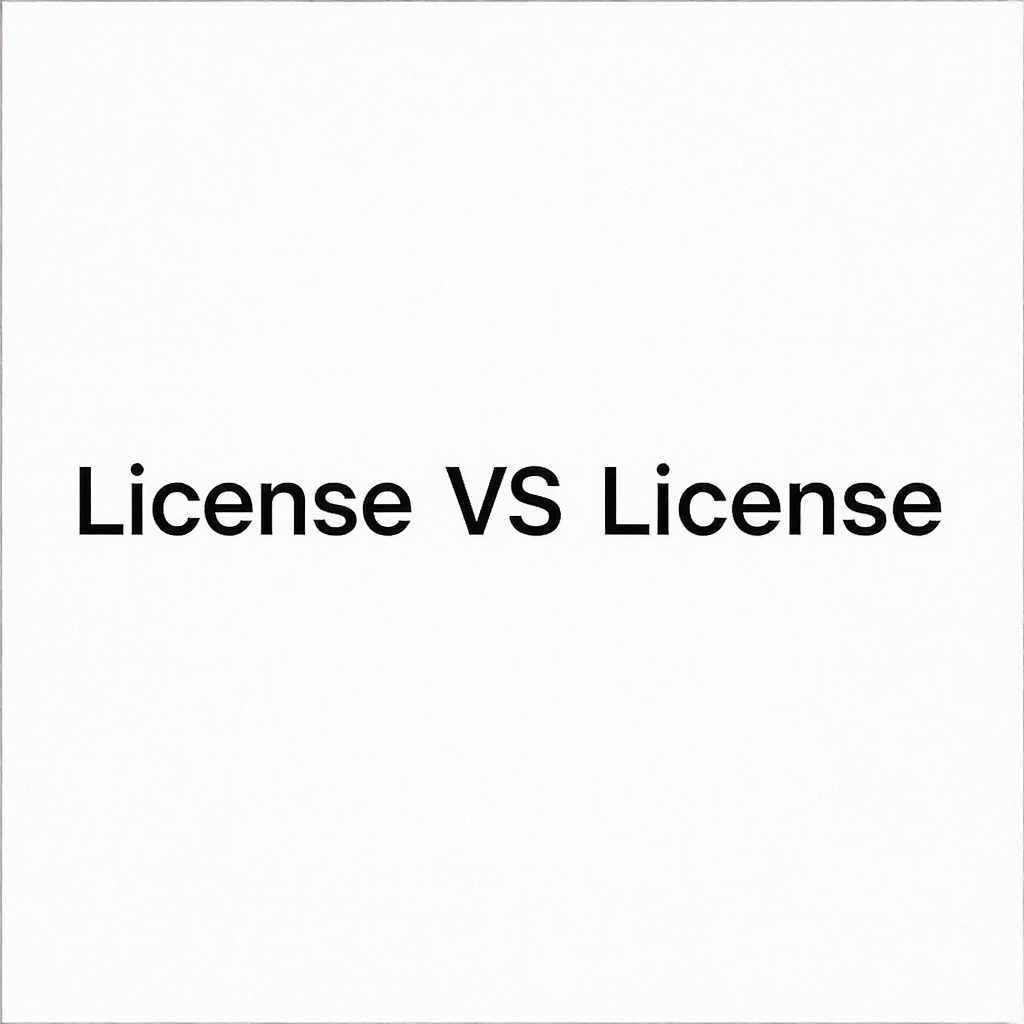"Licence" Vs "License" - What’s the Difference?

English learners often stumble when it comes to words like “licence” and “license.” They look almost the same, but their spelling depends on whether you’re writing in British English or American English.
Midoo AI will guide you through these tricky spelling differences today so you’ll know exactly when to write licence or license.
Licence in British English
In British English, licence is the noun. It refers to the actual document or permit you receive that gives you official permission to do something.
Examples of “Licence” (noun):
- She has a driving licence.
- You need a fishing licence to fish here.
- The restaurant lost its alcohol licence.
- He applied for a work licence.
- My dog has a licence from the council.
👉 If you’re talking about the thing — the physical permit or the permission itself — use licence in British English.
License in British English
In British English, license is the verb. It means “to give permission officially.”
Examples of “License” (verb):
- The government will license new taxi drivers this year.
- This program is licensed to run on only one computer.
- They are licensed to sell alcohol.
- The product was licensed by the company.
- Doctors must be licensed to practice medicine.
👉 If it’s an action — the act of granting permission — write license in British English.
License in American English
In American English, things are simpler: license is used as both noun and verb.
Examples of “License” in American English:
- She has a driver’s license. (noun)
- You need a business license to open a shop. (noun)
- The state will license new teachers this year. (verb)
- This movie is licensed for streaming. (verb)
- He got his fishing license renewed. (noun)
👉 In the U.S., you’ll never see licence with a “c.”
Quick Comparison Table
| English Type | Noun (the document/permission) | Verb (the action of permitting) |
|---|---|---|
| British English | Licence | License |
| American English | License | License |
Memory Tips
- British rule: “c” for noun, “s” for verb. Think: Noun = c, Verb = s.
- American rule: Keep it simple → always license.
- Another trick: In Britain, you might need to check carefully (“c”) before writing. In America, it’s always “s.”
Common Mistakes
❌ I need to renew my driving license in London. ✔️ I need to renew my driving licence in London. (British noun = licence)
❌ The government will licence taxi drivers next month. (in U.S. writing) ✔️ The government will license taxi drivers next month. (U.S. = license always)
FAQs
Is “licence” ever correct in American English?
No. In the U.S., only license is used for both noun and verb.
Why does British English have two spellings?
It follows a traditional spelling rule where some words keep “c” for nouns and “s” for verbs (like advice/advise, device/devise).
Which one should I use for international audiences?
If your readers are mostly American, use license. If they’re British or international, be consistent: noun = licence, verb = license.
What about Canadian, Australian, or other English varieties?
Most Commonwealth countries follow the British English rule: licence (noun), license (verb).
How can I remember quickly?
Ask yourself: Is it a thing (c) or an action (s)? That’s the British way. If you’re in America, just go with license every time.
Final Thoughts
The difference between licence and license mostly comes down to location.
- British English = licence (noun), license (verb).
- American English = license (both).
Midoo AI recommends picking one style and sticking with it, especially if you’re writing for exams, business, or formal contexts.